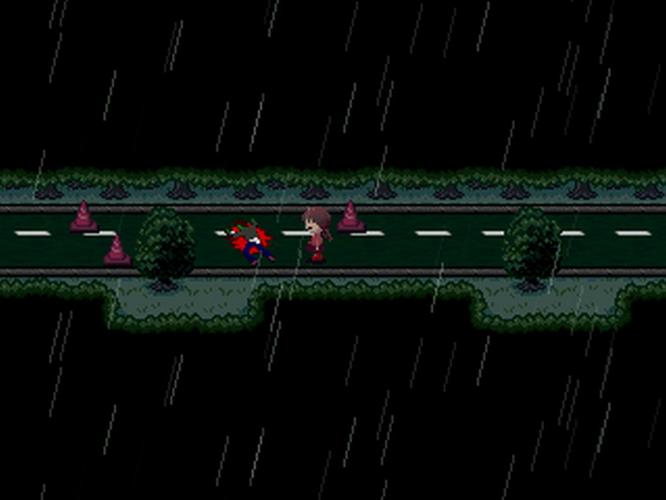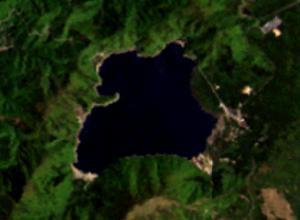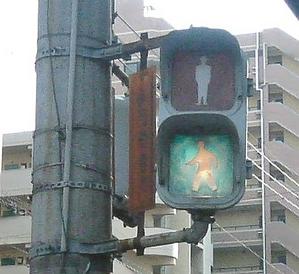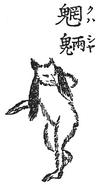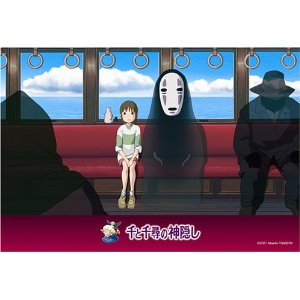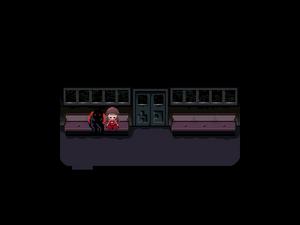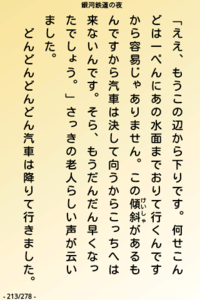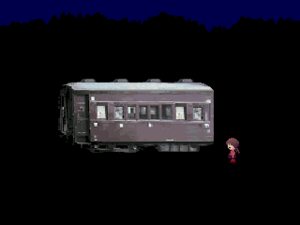>Mt.kiki No edit summary |
m (links) |
||
| (51 intermediate revisions by 6 users not shown) | |||
| Line 1: | Line 1: | ||
[[File:Dence_Woods(Green_man).jpg|thumb|left|666px|The Dence Woods( | [[File:Dence_Woods(Green_man).jpg|thumb|left|666px|The Dence Woods(Aoki-hara)]] | ||
| Line 33: | Line 33: | ||
[[File:Lake_motosu_landsat.jpg|thumb|The northeast side in Lake Motosu is Aokigahara. ]] | [[File:Lake_motosu_landsat.jpg|thumb|The northeast side in Lake Motosu is Aokigahara. ]] | ||
==[[The Dense Woods]]([http://ja.wikipedia.org/wiki/%E6%A8%B9%E6%B5%B7 樹海])== | ==[[Yume Nikki:Dense Woods|The Dense Woods]] ([http://ja.wikipedia.org/wiki/%E6%A8%B9%E6%B5%B7 樹海])== | ||
<span style="display: none;"> </span><span id="cke_bm_43E" style="display: none;"> </span><span style="display: none;"> </span><span id="cke_bm_43S" style="display: none;"> </span><span style="display: none;"> </span><span id="cke_bm_44E" style="display: none;"> </span><span style="display: none;"> </span><span id="cke_bm_44S" style="display: none;"> </span><span style="display: none;"> </span><span id="cke_bm_46E" style="display: none;"> </span><span style="display: none;"> </span><span id="cke_bm_46S" style="display: none;"> </span><span style="display: none;"> </span><span id="cke_bm_47E" style="display: none;"> </span><span style="display: none;"> </span><span id="cke_bm_47S" style="display: none;"> </span>※Name of 「樹海」 is debug name that "Yumenikki Map File" | <span style="display: none;"> </span><span id="cke_bm_43E" style="display: none;"> </span><span style="display: none;"> </span><span id="cke_bm_43S" style="display: none;"> </span><span style="display: none;"> </span><span id="cke_bm_44E" style="display: none;"> </span><span style="display: none;"> </span><span id="cke_bm_44S" style="display: none;"> </span><span style="display: none;"> </span><span id="cke_bm_46E" style="display: none;"> </span><span style="display: none;"> </span><span id="cke_bm_46S" style="display: none;"> </span><span style="display: none;"> </span><span id="cke_bm_47E" style="display: none;"> </span><span style="display: none;"> </span><span id="cke_bm_47S" style="display: none;"> </span>※Name of 「樹海」 is debug name that "Yumenikki Map File" | ||
| Line 43: | Line 43: | ||
*It is a vast forest like the sea.Aoki-hara (ocean-of-foliage of the Mt.Fuji) is famous in Japan. | *It is a vast forest like the sea.Aoki-hara (ocean-of-foliage of the Mt.Fuji) is famous in Japan. | ||
*Slang which points out the thing in a mountain or woods which commits suicide from Aoki-hara being made into the famous place of suicide. | *Slang which points out the thing in a mountain or woods which commits suicide from Aoki-hara being made into the famous place of suicide. | ||
※Relevance with "[http://en.wikipedia.org/wiki/The_Wood_of_the_Self-Murderers:_The_Harpies_and_the_Suicides <u>The Wood of the Self-Murderers: The Harpies and the Suicides</u>]" | |||
http://yumenikki.wikia.com/wiki/Witch%27s_Island(name)#The_Dense_Woods_.28Kimajo.29 | |||
==The Dense Woods ([http://en.wikipedia.org/wiki/LSD_(video_game) LSD (video game)])== | |||
== | |||
[[File:LSD(video game) - The Opening Movie|thumb|center|335 px|樹海(Aokigahara) #0:48~1:22 of the 富士山(Mt.Fuji) #0:08~0:38]] | [[File:LSD(video game) - The Opening Movie|thumb|center|335 px|樹海(Aokigahara) #0:48~1:22 of the 富士山(Mt.Fuji) #0:08~0:38]] | ||
| Line 54: | Line 54: | ||
http://en.wikipedia.org/wiki/LSD_(video_game)_ | http://en.wikipedia.org/wiki/LSD_(video_game)_ | ||
※Relevance with "Mt. Fuji of Yumenikki" of " Mt.Fuji of LSD (game)". | |||
http://yumenikki.wikia.com/wiki/Number_World(name)#The_Stabbing_Room.28Mount_Fuji.29 | |||
==[[Yume Nikki:Shitai-san|Shitai-san]] ([http://en.wikipedia.org/wiki/Traffic_light Traffic light])== | |||
※Shitai-san seems that a "Green Skin(Green walking-man?)", "Red blood(Red-Light?). | |||
Shitai-san(Green Walking-man) became "Red Blood(Red-Light?)" and "Stopped life(Stopped signal?)" | |||
[[File:ShitaiSan.png|thumb|Shitai-san]] | |||
[http://en.wikipedia.org/wiki/Traffic_light#Types <u>2 Types</u>] [http://en.wikipedia.org/wiki/Traffic_light#Pedestrian_and_cyclist_crossing_lights <u>2.4 Pedestrian and cyclist crossing lights</u>] [http://en.wikipedia.org/wiki/Traffic_light#British_standard <u>2.4.4 British standard</u>] | |||
British standard | |||
In the United Kingdom, [http://en.wikipedia.org/wiki/British_Crown_Dependencies <u>British Crown Dependencies</u>] and dependent territories, and former possessions like Hong Kong: | |||
:*Green walking-man: Cross with caution (pedestrians have the right of way; motorists turning left or right must yield to pedestrians | |||
:*Flashing green walking-man: Continue to cross if already in the intersection, but do not start to cross | |||
:*Red/Orange standing-man: Do not cross | |||
[[File:Signal01.jpg|thumb|Shitai-san]] | |||
[http://ja.wikipedia.org/wiki/%E9%9D%92%E4%BF%A1%E5%8F%B7#.E3.81.9D.E3.81.AE.E4.BB.96 <u>12 その他</u>] | |||
※ "Blue jeans" originates in a Japanese "青信号(green/blue) light". | |||
日本では緑色表示を「緑信号」ではなく「'''[http://ja.wikipedia.org/wiki/%E9%9D%92 <u>青</u>]'''信号」と表現されている。 | |||
In Japan, the green display is expressed as the "Blue signal" instead of a "Green signal." | |||
これは戦前、信号機が日本に初めて導入された際、マスメディアが「緑信号」を「青信号」と表現したことによるものである。 | |||
This is because the mass media expressed the "Green signal" as the "Blue signal", when a signal is introduced into Japan for the first time prewar days. | |||
==[[Yume Nikki:Effects#Cat%20%25EF%25BC%2588%25E3%2581%25AD%25E3%2581%2593%25EF%25BC%2589|Cat]] ([http://en.wikipedia.org/wiki/Kasha_(folklore) Kasha (folklore)])== | |||
※"Madotsuki(Cat)" is a "Kasha(burning chariot)" on the "Road"?[[File:CatMado.png|link=http://yumenikki.wikia.com/wiki/Effects|frame|Madotsuki(火車猫)]] | |||
Kasha <span style="font-weight: normal;">(火車<sup>[http://en.wikipedia.org/wiki/Help:Installing_Japanese_character_sets <span class="t_nihongo_icon" style="font: bold 80%/normal sans-serif; padding: 0px 0.1em; color: rgb(0, 0, 238); text-decoration: none; font-size-adjust: none; font-stretch: normal;"><u>?</u></span>]</sup>, lit. "burning [http://en.wikipedia.org/wiki/Chariot <u>chariot</u>]" or "burning [http://en.wikipedia.org/wiki/Barouche <u>barouche</u>]")</span> is the name of a being from [http://en.wikipedia.org/wiki/Japanese_mythology <u>Japanese mythology</u>], belonging to the higher range of [http://en.wikipedia.org/wiki/Demon <u>demons</u>], the [http://en.wikipedia.org/wiki/Y%C5%8Dkai <u>Yōkai</u>]. The belief in Kashas is rooted in [http://en.wikipedia.org/wiki/Shintoism <u>Shintoism</u>] and [http://en.wikipedia.org/wiki/Buddhism <u>Buddhism</u>]. | |||
[http://en.wikipedia.org/wiki/Kasha_(folklore)#Description <u>1 Description</u>] <br /> | |||
[http://en.wikipedia.org/wiki/Japan <u>Japanese</u>] [http://en.wikipedia.org/wiki/Folklore <u>folklore</u>] describes the Kasha as [http://en.wikipedia.org/wiki/Human <u>humanoid</u>] [http://en.wikipedia.org/wiki/Cat <u>cat</u>]-demons with the head of a cat or [http://en.wikipedia.org/wiki/Tiger <u>tiger</u>] and a burning tail. They are similar to other demons such as [http://en.wikipedia.org/wiki/Nekomata <u>Nekomata</u>] and [http://en.wikipedia.org/wiki/Bakeneko <u>Bakeneko</u>] and get often interchanged with them. | |||
[[File:Yumenikki(Shitai-san) - Madotsuki(Cat)|thumb|center|335px|2009年07月16日 22:26 "【ゆめにっき】よし、死体さんに会いに行こう。" #6:26~6:42 Added by "さんすう" 4 考察 ("not bringing a cat close to a dead person" and "the dead body in a coffin rising if a cat jumps over a coffin top.")]] | |||
※"Madotsuki(Cat)" is a "Kasha(humanoid cat-demons)",it is there is relation with a "dead person(Shitai-san)". | |||
[[File:Kyosai_Kasha.jpg|thumb|100px|茅原虚斎『茅窓漫録』より「魍魎(クハシヤ)」]] | |||
[http:// | [http://ja.wikipedia.org/wiki/%E7%81%AB%E8%BB%8A_(%E5%A6%96%E6%80%AA)#.E8.80.83.E5.AF.9F <u>4 考察</u>] | ||
日本古来では猫は魔性の持ち主とされ、「猫を死人に近づけてはならない」「棺桶の上を猫が飛び越えると、棺桶の中の亡骸が起き上がる」といった伝承がある。 | |||
In Japanese ancient times, a cat is made into the owner of devilism and there is tradition of "not bringing a cat close to a dead person" and "the dead body in a coffin rising if a cat jumps over a coffin top." | |||
また中世日本の説話物語集『[http://ja.wikipedia.org/wiki/%E5%AE%87%E6%B2%BB%E6%8B%BE%E9%81%BA%E7%89%A9%E8%AA%9E <u>宇治拾遺物語</u>]』では、獄卒(地獄で亡者を責める悪鬼)が燃え盛る'''[http://ja.wikipedia.org/wiki/%E7%81%AB%E3%81%AE%E8%BB%8A <u>火の車</u>]'''を引き、罪人の亡骸、もしくは生きている罪人を奪い去ることが語られている。 | |||
Moreover, by the collection "Uji shui monogatari" of tale tales of Japan, the car of the fire with which 獄卒 (悪鬼 which blames the dead in hell) burns vigorously is pulled, a sinner's dead body or a living sinner is taken, and last thing is told medieval times. | |||
==[[ | 火車の伝承は、これらのような猫と死人に関する伝承、罪人を奪う火の車の伝承が組み合わさった結果、生まれたものとされる<sup class="reference" id="cite_ref-murakami_1-4">[http://ja.wikipedia.org/wiki/%E7%81%AB%E8%BB%8A_(%E5%A6%96%E6%80%AA)#cite_note-murakami-1 <u>[1</u>]]</sup>。<br /> | ||
The tradition of 火車 should be produced as a result of the tradition about these cats and dead persons and the tradition in straitened circumstances which takes a sinner combining [1]. | |||
※Possibly, he was killed in accident noting that the body would help the cat (the life was claimed by the cat)? | |||
==The Dense Woods([http://en.wikipedia.org/wiki/Art_therapy Art therapy])== | |||
※The "red corn" on the street has suggested the deadlock of life? | |||
[[ | <span style="display: none;"> </span><span id="cke_bm_43E" style="display: none;"> </span><span style="display: none;"> </span><span id="cke_bm_43S" style="display: none;"> </span><span style="display: none;"> </span><span id="cke_bm_44E" style="display: none;"> </span><span style="display: none;"> </span><span id="cke_bm_44S" style="display: none;"> </span><span style="display: none;"> </span><span id="cke_bm_46E" style="display: none;"> </span><span style="display: none;"> </span><span id="cke_bm_46S" style="display: none;"> </span><span style="display: none;"> </span><span id="cke_bm_47E" style="display: none;"> </span>[http://en.wikipedia.org/wiki/Art_therapy#Art-based_assessments <u>7 Art-based assessments</u>] [http://en.wikipedia.org/wiki/Art_therapy#Road_drawing <u>7.4 Road drawing</u>] | ||
Road drawing | |||
In this drawing assessment and therapeutic intervention, the patient is asked to draw a road. This is a projective assessment used to create a graphic representation of the person's "road of life." The road drawing has the potential to elicit spontaneous imagery that represents the client's origins, the history of his or her life process, experiences to date, and intent for the future - even from a single drawing (Hanes, 1995, 1997, 2008). The road's reparative features or its need for "periodic upgrade" can serve as a metaphor for the client's capacity for change and restoration (Hanes, 1995, 1997, 2008). | |||
[[File:千と千尋の神隠し(Spilit_away).jpg|link=http://lopnur.way-nifty.com/hibi/2012/07/post-8073.html|frame|"Spirited Away (Japanese: 千と千尋の神隠し)"(July 20, 2001) | |||
]] | |||
==[[Yume Nikki:Traincar|Traincar]] (''[http://en.wikipedia.org/wiki/Spirited_Away Spirited Away])''== | |||
※"Spirited Away" is no train of return. | |||
釜爺の「間違えるなよ。昔は戻りの電車があったんだが、近頃は行きっぱなしだ」という台詞。 | |||
釜爺 "don't mistake.Although there was a train of return a long time ago, it only goes recently" | |||
[[File:Inside_train.jpg|thumb|left|Inside the train car with black man.]] | |||
[[File: | |||
[[File:Night_on_the_Galactic_Rainroad(Page213~278).png|thumb|Night_on_the_Galactic_Rainroad(Page213~278)]]※"Night on the Galactic Rainroad" is no train of return. | |||
銀河鉄道の夜(Night on the Galactic Rainroad) | |||
「・・・この傾斜があるもんですから汽車は決して向うからこっちへは来ないんです。」 | |||
"... a train never comes here from the other side because of this inclination." | |||
[[File:Train_yume_nikki.png|thumb|left|"Yumenikki" is no train of return. | |||
]] | ]] | ||
http:// | |||
[[Category: | |||
※It is not a steam locomotive(Galactic Train) but a train(Spirited Away's Train). | |||
http://yumenikki.wikia.com/wiki/Mars(name)#Final_Destination.28Night_on_the_Galactic_Railroad.29 | |||
2022年にわかったこと | |||
この0.09バージョンの茄子が樹海に出現する理由は、樹海の事件は夏に起きたからである | |||
* An unused event in [[Yume Nikki:Old Versions#Version 0.09|version ''0.09'']] known as [[Yume Nikki:Events#NASU Link|NASU Link]] had the character from [[Yume Nikki:NASU|NASU]] appear in this location. Interacting with it would lead the player to the unused [[Yume Nikki:FC World C|FC World C]]. | |||
これについて「夏の精霊馬の茄子」だから「この樹海の季節はNASUが出ることから、交通事故の当時の季節は夏となる」 | |||
さらに「蛙は日本での雨の季節、つまりは夏の雨の多い季節に出てくる蛙は、日本の夏を示している」 | |||
「モノ子は夏服の半袖」であり、その夏の日に、交通事故に巻き込まれたと思われる、信号機を示すことから | |||
「モノ江も夏服の半袖」で誘拐された、かくれんぼの子供の遊びから、神隠しと予想できる | |||
モノ子は夏に死んだことはわかるが、モノ江は夏に誘拐され、子供を身ごもって、冬に失踪したから、マフラー子は消えた | |||
つまり、茄子が獲れる夏の季節で、蛙のいる夏の季節で、夏の7月下旬に、夏服の半袖の服を着ていたモノ子は交通事故で亡くなり、その際に、マドツキとモノ江は誘拐されて子供を身ごもった、冬の世界のかまくら子とマフラー子は二人の胎児で | |||
RPGツクール版では、冬の季節にモノ江は既に失踪して亡くなってたから、胎児のマフラー子は透明だったのに対して | |||
まだモノ江が生きていた頃のエピソードがDREAM DIARY版だから、そのときはマフラー子も生きていたから姿が見えていた | |||
DREAM DIARY版のマドツキは、家の外に出たのは、まだマフラー子の胎児を身ごもっていたモノ江を助けに向かったという解釈になる | |||
またマドツキが引きこもりになった理由は、親にも学校にも、モノ子を轢き殺した犯人との間に産まれた胎児を守るため、24個の卵は隠された腹の子を、堕胎させようとする人たち、つまり鳥人間から守る意味を示している | |||
しかし、モノ江はその途中で、犯人との間の子供を産むかどうか悩み、耐えかねて泣いていた、またはマドツキのもとから姿を消して失踪したとなる | |||
280日の臨月で産まれた日が、イースターエッグの春分の日となるため | |||
夏の日に事件は起きた | |||
蛙と茄子がある樹海は、モノ子が事故死して、目撃者となるモノ江とマドツキを、樹海につれてきた、そのときに犯人は子供を身ごもらせたのち、自殺した | |||
樹海から生存したマドツキは、冬の季節に妊娠が発覚して、子供を産むかどうか悩んだ末に、引きこもりになり、自殺するか悩んだ | |||
モノ江は妊娠に耐えかねて、姿を消した | |||
だから、冬の季節にマドツキの胎児のかまくら子は生きてたから姿はあったが | |||
モノ江の胎児のマフラー子は、モノ江が姿を消してしまったので、胎児のマフラー子も消えた、となる | |||
これが樹海の事件の真相となる | |||
* 交通事故の原因は赤い傘、マドツキが赤い傘を持っていたとき、雨嵐であおられて、横断歩道に落ちてしまう、これを拾おうとしたモノ子が交通事故にあった、目撃者のマドツキとモノ江は車で樹海に連行されて、その夏の日に子供を身ごもって、そして冬を隔てて、春分のイースターエッグの日に至る、これは臨月の280日と一致する、また半袖のモノ子は当時が夏の季節と示すため事件は7月下旬の嵐のある梅雨の季節に赤い傘が飛ばされ横断歩道に出たモノ子は拾おうとして轢かれたとなります -- 2022-01-20 (木) 09:55:35'''New!''' | |||
[[Category:Yume Nikki theoretical discussions by Mt.kiki]] | |||
Latest revision as of 02:04, 24 April 2023
The Dense Woods (樹海)
※Name of 「樹海」 is debug name that "Yumenikki Map File"
樹海(じゅかい)
Ocean of foliage
- It is a vast forest like the sea.Aoki-hara (ocean-of-foliage of the Mt.Fuji) is famous in Japan.
- Slang which points out the thing in a mountain or woods which commits suicide from Aoki-hara being made into the famous place of suicide.
※Relevance with "The Wood of the Self-Murderers: The Harpies and the Suicides"
http://yumenikki.wikia.com/wiki/Witch%27s_Island(name)#The_Dense_Woods_.28Kimajo.29
The Dense Woods (LSD (video game))
Developer(s) - OutSide Directors Company
Platform(s)PlayStation, PSN
『LSD (video game) 』 Release date(s) - JP October 22, 1998
http://en.wikipedia.org/wiki/LSD_(video_game)_
※Relevance with "Mt. Fuji of Yumenikki" of " Mt.Fuji of LSD (game)".
http://yumenikki.wikia.com/wiki/Number_World(name)#The_Stabbing_Room.28Mount_Fuji.29
Shitai-san (Traffic light)
※Shitai-san seems that a "Green Skin(Green walking-man?)", "Red blood(Red-Light?).
Shitai-san(Green Walking-man) became "Red Blood(Red-Light?)" and "Stopped life(Stopped signal?)"
2 Types 2.4 Pedestrian and cyclist crossing lights 2.4.4 British standard
British standard
In the United Kingdom, British Crown Dependencies and dependent territories, and former possessions like Hong Kong:
- Green walking-man: Cross with caution (pedestrians have the right of way; motorists turning left or right must yield to pedestrians
- Flashing green walking-man: Continue to cross if already in the intersection, but do not start to cross
- Red/Orange standing-man: Do not cross
※ "Blue jeans" originates in a Japanese "青信号(green/blue) light".
日本では緑色表示を「緑信号」ではなく「青信号」と表現されている。
In Japan, the green display is expressed as the "Blue signal" instead of a "Green signal."
これは戦前、信号機が日本に初めて導入された際、マスメディアが「緑信号」を「青信号」と表現したことによるものである。
This is because the mass media expressed the "Green signal" as the "Blue signal", when a signal is introduced into Japan for the first time prewar days.
Cat (Kasha (folklore))
※"Madotsuki(Cat)" is a "Kasha(burning chariot)" on the "Road"?
Kasha (火車?, lit. "burning chariot" or "burning barouche") is the name of a being from Japanese mythology, belonging to the higher range of demons, the Yōkai. The belief in Kashas is rooted in Shintoism and Buddhism.
1 Description
Japanese folklore describes the Kasha as humanoid cat-demons with the head of a cat or tiger and a burning tail. They are similar to other demons such as Nekomata and Bakeneko and get often interchanged with them.
※"Madotsuki(Cat)" is a "Kasha(humanoid cat-demons)",it is there is relation with a "dead person(Shitai-san)".
日本古来では猫は魔性の持ち主とされ、「猫を死人に近づけてはならない」「棺桶の上を猫が飛び越えると、棺桶の中の亡骸が起き上がる」といった伝承がある。
In Japanese ancient times, a cat is made into the owner of devilism and there is tradition of "not bringing a cat close to a dead person" and "the dead body in a coffin rising if a cat jumps over a coffin top."
また中世日本の説話物語集『宇治拾遺物語』では、獄卒(地獄で亡者を責める悪鬼)が燃え盛る火の車を引き、罪人の亡骸、もしくは生きている罪人を奪い去ることが語られている。
Moreover, by the collection "Uji shui monogatari" of tale tales of Japan, the car of the fire with which 獄卒 (悪鬼 which blames the dead in hell) burns vigorously is pulled, a sinner's dead body or a living sinner is taken, and last thing is told medieval times.
火車の伝承は、これらのような猫と死人に関する伝承、罪人を奪う火の車の伝承が組み合わさった結果、生まれたものとされる[1]。
The tradition of 火車 should be produced as a result of the tradition about these cats and dead persons and the tradition in straitened circumstances which takes a sinner combining [1].
※Possibly, he was killed in accident noting that the body would help the cat (the life was claimed by the cat)?
The Dense Woods(Art therapy)
※The "red corn" on the street has suggested the deadlock of life?
7 Art-based assessments 7.4 Road drawing
Road drawing
In this drawing assessment and therapeutic intervention, the patient is asked to draw a road. This is a projective assessment used to create a graphic representation of the person's "road of life." The road drawing has the potential to elicit spontaneous imagery that represents the client's origins, the history of his or her life process, experiences to date, and intent for the future - even from a single drawing (Hanes, 1995, 1997, 2008). The road's reparative features or its need for "periodic upgrade" can serve as a metaphor for the client's capacity for change and restoration (Hanes, 1995, 1997, 2008).
Traincar (Spirited Away)
※"Spirited Away" is no train of return.
釜爺の「間違えるなよ。昔は戻りの電車があったんだが、近頃は行きっぱなしだ」という台詞。
釜爺 "don't mistake.Although there was a train of return a long time ago, it only goes recently"
※"Night on the Galactic Rainroad" is no train of return.
銀河鉄道の夜(Night on the Galactic Rainroad)
「・・・この傾斜があるもんですから汽車は決して向うからこっちへは来ないんです。」
"... a train never comes here from the other side because of this inclination."
※It is not a steam locomotive(Galactic Train) but a train(Spirited Away's Train). http://yumenikki.wikia.com/wiki/Mars(name)#Final_Destination.28Night_on_the_Galactic_Railroad.29
2022年にわかったこと
この0.09バージョンの茄子が樹海に出現する理由は、樹海の事件は夏に起きたからである
- An unused event in version 0.09 known as NASU Link had the character from NASU appear in this location. Interacting with it would lead the player to the unused FC World C.
これについて「夏の精霊馬の茄子」だから「この樹海の季節はNASUが出ることから、交通事故の当時の季節は夏となる」
さらに「蛙は日本での雨の季節、つまりは夏の雨の多い季節に出てくる蛙は、日本の夏を示している」
「モノ子は夏服の半袖」であり、その夏の日に、交通事故に巻き込まれたと思われる、信号機を示すことから
「モノ江も夏服の半袖」で誘拐された、かくれんぼの子供の遊びから、神隠しと予想できる
モノ子は夏に死んだことはわかるが、モノ江は夏に誘拐され、子供を身ごもって、冬に失踪したから、マフラー子は消えた
つまり、茄子が獲れる夏の季節で、蛙のいる夏の季節で、夏の7月下旬に、夏服の半袖の服を着ていたモノ子は交通事故で亡くなり、その際に、マドツキとモノ江は誘拐されて子供を身ごもった、冬の世界のかまくら子とマフラー子は二人の胎児で
RPGツクール版では、冬の季節にモノ江は既に失踪して亡くなってたから、胎児のマフラー子は透明だったのに対して
まだモノ江が生きていた頃のエピソードがDREAM DIARY版だから、そのときはマフラー子も生きていたから姿が見えていた
DREAM DIARY版のマドツキは、家の外に出たのは、まだマフラー子の胎児を身ごもっていたモノ江を助けに向かったという解釈になる
またマドツキが引きこもりになった理由は、親にも学校にも、モノ子を轢き殺した犯人との間に産まれた胎児を守るため、24個の卵は隠された腹の子を、堕胎させようとする人たち、つまり鳥人間から守る意味を示している
しかし、モノ江はその途中で、犯人との間の子供を産むかどうか悩み、耐えかねて泣いていた、またはマドツキのもとから姿を消して失踪したとなる
280日の臨月で産まれた日が、イースターエッグの春分の日となるため
夏の日に事件は起きた
蛙と茄子がある樹海は、モノ子が事故死して、目撃者となるモノ江とマドツキを、樹海につれてきた、そのときに犯人は子供を身ごもらせたのち、自殺した
樹海から生存したマドツキは、冬の季節に妊娠が発覚して、子供を産むかどうか悩んだ末に、引きこもりになり、自殺するか悩んだ
モノ江は妊娠に耐えかねて、姿を消した
だから、冬の季節にマドツキの胎児のかまくら子は生きてたから姿はあったが
モノ江の胎児のマフラー子は、モノ江が姿を消してしまったので、胎児のマフラー子も消えた、となる
これが樹海の事件の真相となる
- 交通事故の原因は赤い傘、マドツキが赤い傘を持っていたとき、雨嵐であおられて、横断歩道に落ちてしまう、これを拾おうとしたモノ子が交通事故にあった、目撃者のマドツキとモノ江は車で樹海に連行されて、その夏の日に子供を身ごもって、そして冬を隔てて、春分のイースターエッグの日に至る、これは臨月の280日と一致する、また半袖のモノ子は当時が夏の季節と示すため事件は7月下旬の嵐のある梅雨の季節に赤い傘が飛ばされ横断歩道に出たモノ子は拾おうとして轢かれたとなります -- 2022-01-20 (木) 09:55:35New!

